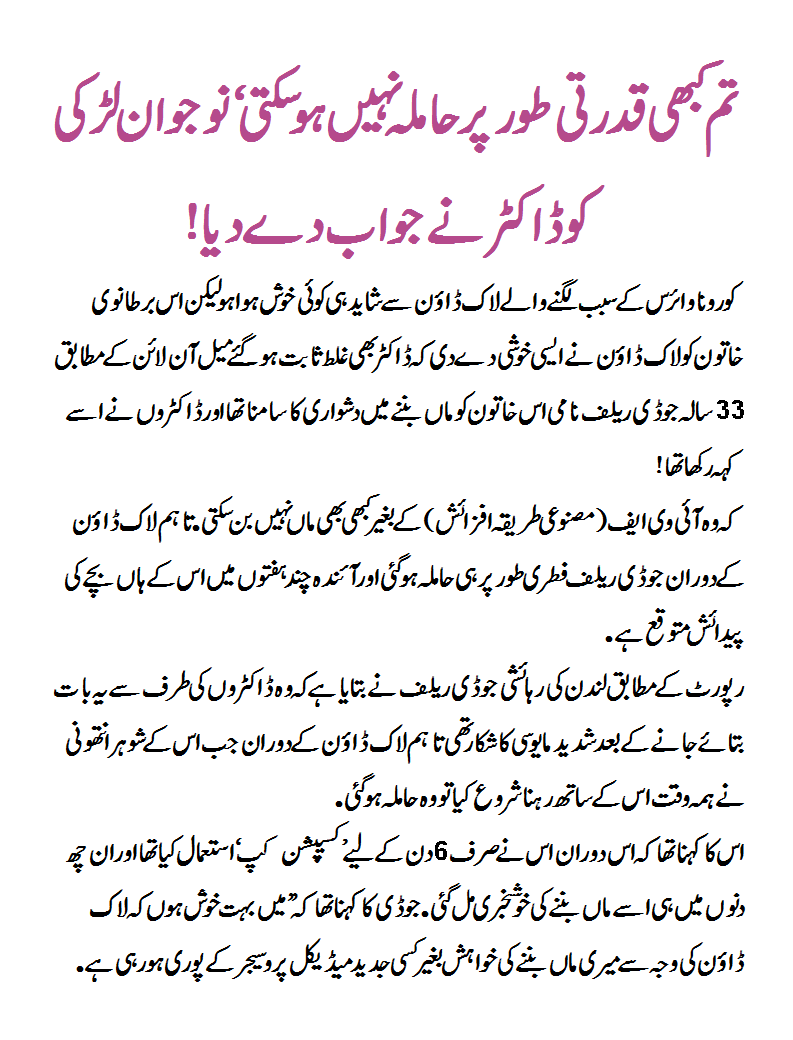NEW YORK (Reuters Health) – Almost half of women who said they’d been struggling to get pregnant for at least a year ended up having a baby despite not getting fertility treatment, in a new study from Australia.
That success rate was only slightly lower than in women who also reported trouble conceiving and opted for treatment with fertility hormones or in vitro fertilization (IVF).
“Many women aged up to 36 years with a history of infertility can achieve spontaneous conception and live birth without using fertility treatment indicating (they)
are sub-fertile rather than infertile,”study researcher Danielle Herbert of the University of Queensland School of Population Health in Brisbane told Reuters Health in an email.
That means that if nothing is clearly wrong — men make enough sperm, and women are ovulating regularly — couples who have had trouble conceiving should still be optimistic they can get pregnant on their own, researchers said.
“I’m not surprised that women who were not treated still get pregnant — we know that,” said Dr. Courtney Lynch, head of reproductive epidemiology at The Ohio State University in Columbus, who wasn’t involved in the new research.

“We know we can get women pregnant quicker if we have them go into IVF, but if we give women time, (many of them) can still get pregnant,” she told Reuters Health.
The research is part of a long-term study of more than 7,000 women living in Australia. Starting in 1996, participants filled out health surveys every few years, which included questions on pregnancy and childbirth.